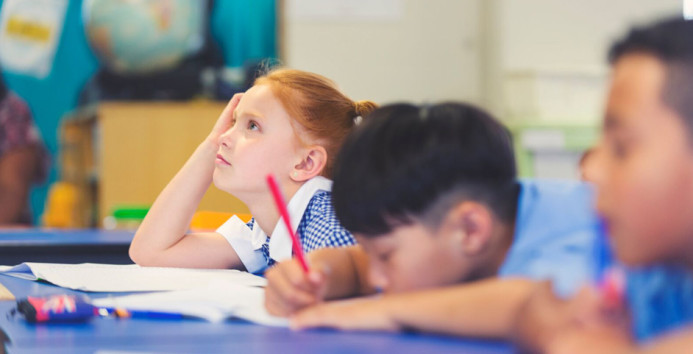Coping with eco-anxiety: Practical tips for young minds
This article provides practical advice for young minds dealing with eco-anxiety, offering effective strategies to manage stress and stay positive while facing environmental concerns.

Climate change is no longer a distant issue, and the Middle East is feeling its effects first-hand. With rising temperatures, water scarcity, and environmental challenges, young people are growing up in a world of uncertainty. These realities can leave them feeling anxious or concerned about the future. While it’s natural to worry about the state of our planet, for many, these feelings can escalate, leading to stress and emotional strain.
As parents, educators, and caregivers, understanding how to address this form of anxiety in young people is crucial. Whether it’s helping them cope with eco-anxiety, offering anxiety relief strategies, or encouraging mindfulness, small steps can make a big difference in their emotional wellness.
Here’s how you can guide them through these challenging feelings while empowering them to take positive action.
Recognising eco-anxiety
Eco-anxiety, the persistent fear of environmental disaster, is becoming a growing concern among young people. It often shows up as worry, sadness, or even social anxiety, making it harder for them to express their feelings or engage in conversations about the environment.
Common signs to look out for include difficulty concentrating, avoiding discussions about climate issues, or feeling particularly anxious when watching news reports. Noticing these signs early is key, as unchecked eco-anxiety can heighten stress, affect mental health, and lower self-esteem. The first and most important step in helping young people is to acknowledge their feelings and let them know their emotions are valid and that they are not alone in facing these challenges.
Coping with eco-anxiety
One of the most effective ways to support someone dealing with eco-anxiety is by encouraging open conversations in a safe, judgement-free space. Listening with empathy and validating their emotions can reassure them they’re not alone in facing these concerns.
Another important strategy is to shift their focus toward what they can control. Encourage them to take small, meaningful actions like recycling, reducing waste, or joining environmental initiatives. These proactive steps not only help the planet but also empower young people to feel a sense of purpose and control.
Mindfulness practices
Mindfulness can be an effective way to stay present and grounded while offering anxiety relief. Practices like deep breathing exercises, guided meditations, or time in nature have been known to lower heart rate, decrease stress hormones, and improve mental clarity, making it easier to approach challenges with a balanced perspective.
Journaling is also a way for them to process their emotions by putting thoughts into words, reducing anxiety and creating a sense of control. Gratitude journaling, in particular, encourages positivity, helping to shift focus from worries to what brings joy and comfort. These habits not only promote emotional resilience but also foster a deeper sense of connection to the world around them.
The power of community
Helping young people turn eco-anxiety into strength starts with knowledge and connection. Focus on solutions and the steps we can take to make a difference rather than dwelling on the problems. This not only inspires optimism but also gives them a sense of control and purpose, helping them see that their actions, no matter how small, really do matter.
Equally important is encouraging them to find their community. Being part of a like-minded group (whether it’s a local environmental group or just a few friends) can be instrumental. Having support can transform feelings of fear into a sense of empowerment and belonging.
Eco-anxiety is a natural response to the challenges our planet is facing, but it doesn’t have to consume young people. By listening to their concerns, validating their feelings, and equipping them with the right tools, we can help them transform their worries into strength. Helping young people find balance and purpose allows them to take meaningful action while staying grounded and hopeful for the future.







